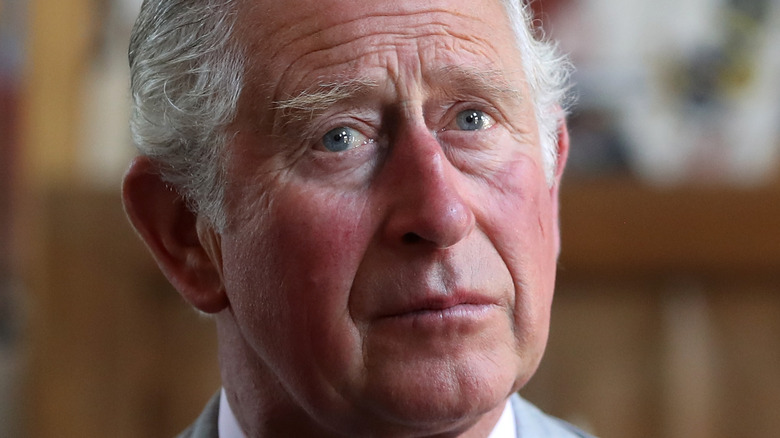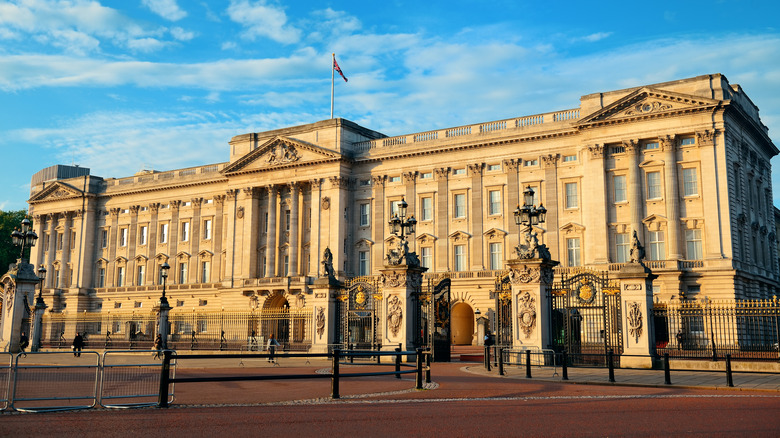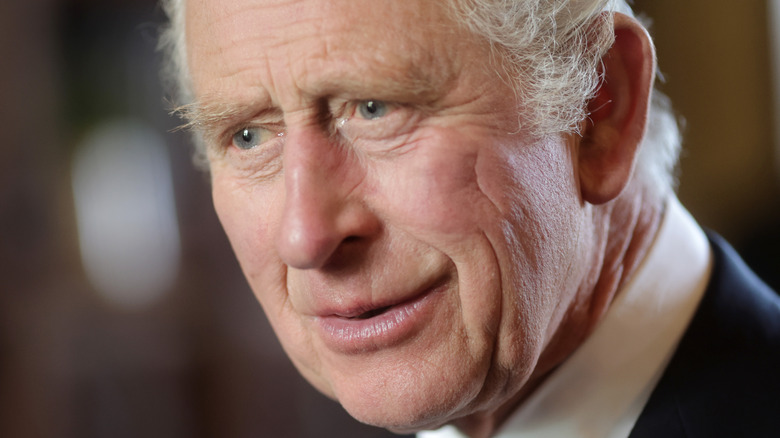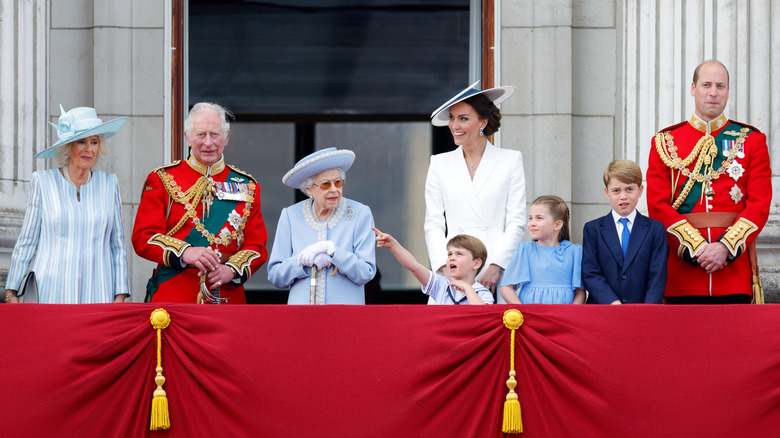How The Queen's Death Made King Charles An Even Richer Man
Queen Elizabeth II was one of the richest women in the world, worth an estimated $600 million at the time of her death, according to Celebrity Net Worth. This staggering wealth allowed the queen to live an insanely lavish life. The royal family's official website states that her residence, Buckingham Palace, boasts 775 rooms, 78 of them bathrooms. She had a luxury car collection worth over $11 million that included multiple Rolls-Royces and Bentleys (per Insider). The Bentleys were custom made for the queen to be longer, wider, and higher than standard — high enough that she could enter and exit the cars without stooping. She even employed a staff member to break in all of her footwear (per Evening Standard).
King Charles III wasn't exactly poor when he was merely Prince Charles, Prince of Wales. Celebrity Net Worth estimates that he was worth about $100 million before becoming king. Most of his income came from the Duchy of Cornwall, an estate set up in 1337 to provide funds to the monarch's eldest son while he waits to become king. The New York Times reported that the estate, which now passes to Prince William, Prince of Wales, is worth around $1.4 billion. Its value grew by about 50% under Charles.
Now, following the death of his mother, the new king has become even wealthier.
The Sovereign Grant is the British royal family's main income source
The complicated nature of the monarchy's holdings makes it hard to calculate the exact fortune of any individual royal, or the family as a whole. The BBC identified the Sovereign Grant as the main source of the royal family's income.
The grant is usually calculated as 15% of the profits from the Crown Estate, a property business that includes assets such as shopping malls, wind farms, the Ascot racecourse, and Regent Street in London. That percentage was increased to 25% for one decade starting in 2017, and the higher amount is intended to cover the cost of the planned 10-year-long refurbishment of Buckingham Palace. If the Crown Estate's profits dip in any given year — as they have done during the COVID-19 pandemic — then the Treasury must top up the Sovereign Grant to equal the previous year's amount.
According to the royal family's official website, the Sovereign Grant for 2020-21 totaled £85.9 million (approximately $98 million).
King Charles III receives money from other sources
Another crucial source of income for King Charles III is the Duchy of Lancaster, a portfolio that is passed down from one reigning monarch to the next (per BBC). This private estate earns around $23 million per year for the ruler.
And, of course, the royal family has a vast personal fortune worth an undisclosed amount. Their privately owned real estate holdings include properties such as Balmoral Castle and Sandringham Estate. The Daily Mirror reported that Queen Elizabeth II's will won't be unsealed for 90 years, keeping the details of her personal wealth secret for decades to come.
Whatever the queen's personal fortune actually was, the new king now owns it — without getting dinged for the 40% inheritance tax that other British citizens have to pay (per The Guardian). According to Celebrity Net Worth, King Charles' net worth has soared from $100 million to $600 million, the same as his mother's estimated fortune at the time of her death.
The new king also inherited an extremely valuable brand
King Charles III inherited more than just money, real estate, priceless art, jewelry, stamp collections, and luxury automobiles upon his mother's death. Queen Elizabeth II also left her eldest son something less tangible but potentially even more valuable: one of the highest-profile brands in the world.
In 2021, the New York Post reported that German company Statistica had analyzed market data about the British monarchy for True Royalty TV. Their conclusion? Britain's longest-reigning monarch had turned the royal family — frequently nicknamed The Firm — into the fifth-largest "corporate" brand on the planet. The House of Windsor is even bigger than common household names such as Coca-Cola and Nike. Nick Bullen, the cofounder of True Royalty TV, called the queen "the world's longest-standing and most successful CEO" and declared that she had "built the British monarchy into one of the world's biggest brands."
Before the pandemic, the monarchy added about $2.7 billion to the UK's economy each year, according to Forbes. "It is a very formalized influencer business," said David Haigh, CEO of Brand Finance. The value of the monarchy is based on the public's perception of The Firm and its 1,000-year history. If the new king can maintain a positive image for the royal family, then he can potentially grow this highly lucrative brand even further.



